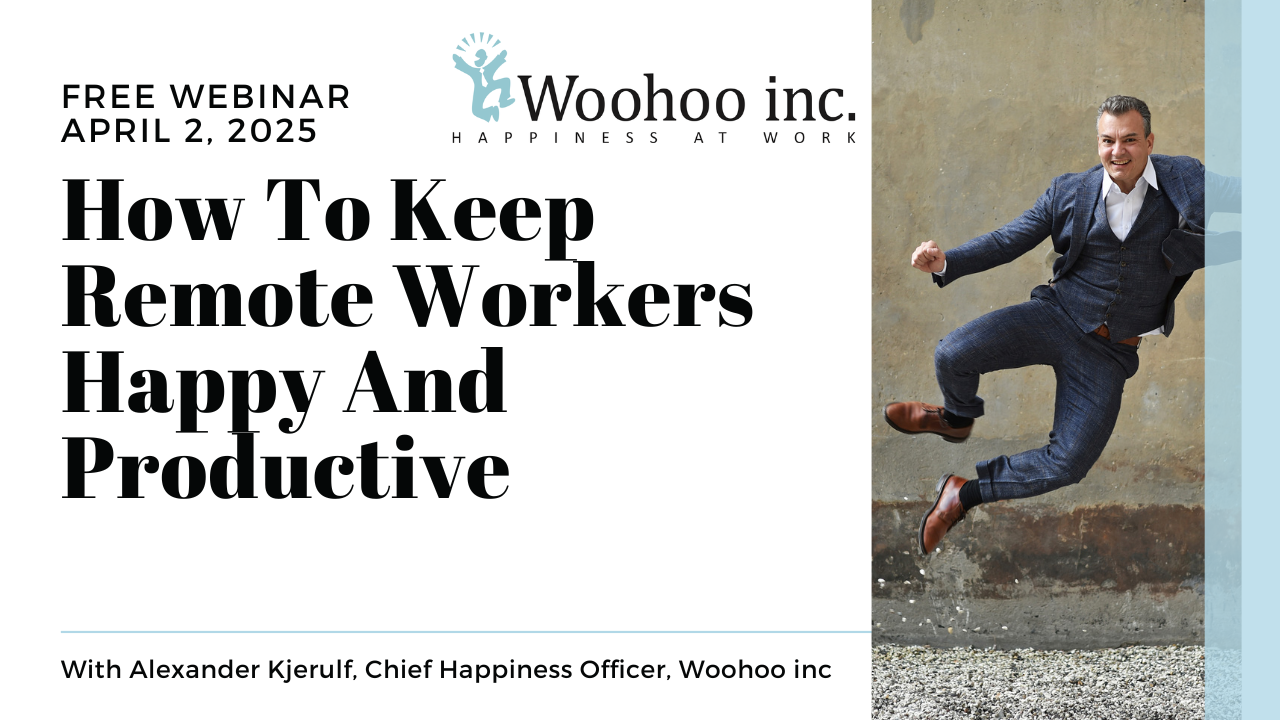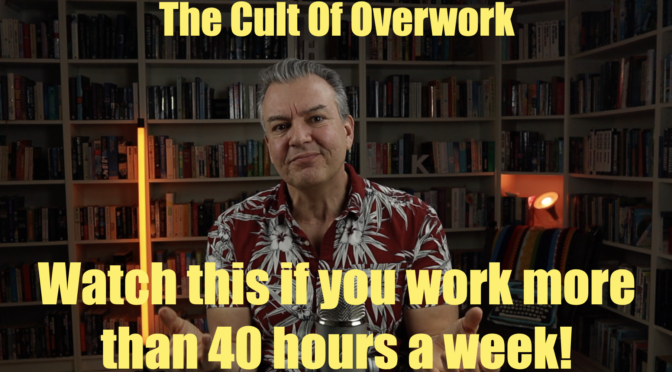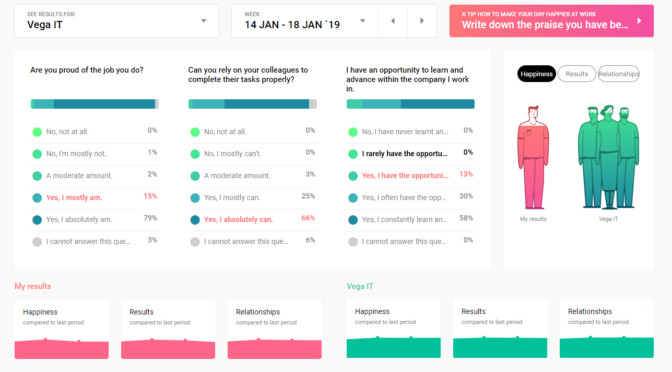Last week I attended the annual conference on happiness at work here in Copenhagen and as usual it was a fantastic day with some great talks by researchers in the field and people from some of Denmark’s happiest workplaces who shared how they do it in practice.
One of the overall themes this year was how to stay focused at work or in broader terms, how to make a brain-friendly workplace.
That’s an important theme. I don’t know about you but I feel increasingly distracted these days. It’s become harder and harder for me to stay focused on whatever I’m doing and not succumb to the temptation of pulling out my phone and scroll social media, news or other sites. Reddit is my biggest vice! Or YouTube. Probably both!
The central misunderstanding
The speakers offered a lot of suggestions for this issue but some of it missed the mark a little bit.
For instance, one speaker referenced research that showed that smelling rosemary helped a person maintain focus longer. Other similar advice included:
- Go for a walk
- Look at nature
- Stare at a fixed point without moving your eyes for 2 minutes
- Be physically active
- Look at something beautiful
Each of these are probably great, but here’s my problem with this type of solution: It takes what is most likely a workplace problem and makes it an employee problem.
Let’s say a lot of employees in the workplace find it hard to maintain focus. Before we start pumping rosemary or other scents into the office (yes, this is actually a thing) we should probably ask WHY employees are so easily distracted. Here are some common problems I often see:
- Processes and workflows are inefficient or unclear
- Meetings take up significant portions of everyone’s workweek
- Everyone is overworked and the ensuing stress is making it hard to focus.
- Employees find their tasks meaningless because no one has ever told them why their work makes a difference.
- Employees feel overlooked because no one ever appreciates their good work.
- Bosses micromanage their employees making them feel completely disinterested in their work.
- People are constantly interrupted and are expected to respond instantly to every email, text message or call.
I promise you, if any of these is the problem (and it might even be several of them or all of them) then sniffing rosemary is going to do very little to improve focus and concentration.
In fact, telling employees to fix their own focus issues with rosemary might make things worse because it take something that is a workplace problem (the workplace is treating employees badly) and makes it an individual problem that employees must fix themselves.
This can serve to absolve management from their mistreatment and shift the blame and responsibility onto employees themselves.
Why this does not work in isolation
And it’s important to point out that this individual approach does not work. I did a video with Louise Lambert where we talk about a huge British study that looked at the effectiveness of individual-level workplace interventions like stress trainings or yoga classes and concludes that they do not make employees any happier.
Of course, there are ways for each of us to boost our own concentration and we should each figure out what works for us and do that.
Personally, I find I need structure and overview to function well. Nothing drains my focus faster than a vague sense that there is some task somewhere that I’ve forgotten to do and someone is waiting for. I also need to know that my work matters and that everything I do makes a difference.
That’s why I need an organized calendar, a clear email inbox and a comprehensive to do-list. Without these, I would get nothing done.
I also take into account my daily rhythms. I find that I am much more creative in the mornings, so I save those times for writing, thinking and planning ahead. It is 9:37 as I write this sentence. I use the afternoons for everything else like meetings, emails, etc.
These are just some of the things that I’ve found over the years help me stay focused and productive. What works for you? Write a comment, I’d love to know.
BUT!!! You could use every focus hack in existence and it still wouldn’t work if the real problem is a micromanaging toxic boss or stress caused by an overwhelming workload.
And that’s my problem with many of the workplace happiness approaches I see speakers and experts promote. It goes for individual solutions to systemic problems.
What to do instead
So what should we do instead? Many of the speakers at the Happiness At Work Conference offered specific solutions that they’ve used in their workplaces.
My favorite examples was the Danish law firm Molt Wengel. Their CEO Anne Katrine Schjønning explained that they have gone through a 6-month long process to redesign how they work.
This was their mission:
”We want to look forward to going to work and at Molt Wengel we believe that we can create a work life where where we end the work day with more energy than when et began.”
Specifically they:
- Focused on making the work meaningful to each employee so everyone knows why their work is important
- Redesigned their workflow to make it more clear and efficient
- Created well-defined roles in projects so everyone can work to their strengths
- Work in sprints to create focus and a clear sense of progress
- Use the pomodoro technique to create periods of uninterrupted focus time
This has worked so well that they now work fewer hours and still get more work done than before. The company has also massively increased revenue and profits.
Astonishingly, they are now so efficient that they can all start their weekends at noon on Fridays so everyone has an extra half day off every week. If you know law firms, you know just how uncommon this is.
And I think this is the way to go. Let’s look at HOW we work together in order to boos focus and concentration and minimize interruptions and distractions.
Another speaker at the conference was Michael Hedemann who works in HR at Middelfart Sparekasse, a Danish bank that has ranked among Denmark’s best workplaces for 20 years. One of their specific initiatives was to encourage all employees to turn off email and Teams notifications on their computers as well as all notifications on their phones. He told me that the only thing that pops up on his phone to interrupt his workflow are actual phone calls.
That’s how you do it.
Some specific ideas
Here are some other specific ways to make our workplaces more focused and productive:
- Have fewer, shorter, smaller and more effective meetings
- Give people feedback and appreciation
- Set people free to design their own work days to make themselves more effective
- Highlight meaning and purpose so everyone know their work matters
- Have a healthy email culture so not everyone is cc’d on everything
- Don’t overwork people. No one can stay focused during a 10-hour work day.
If he workplace is not willing to do any of this, shifting the burden of responsibility onto employees is never going to work.
The upshot
Yes, we are all finding it harder to focus – both at work and in our private lives. We can all blame the increasingly addictive nature of social media or the faster pace of the modern world or the increasing political insecurity in the world, but either way, the problem is real.
But addressing it in the workplace requires addressing any systemic issues at work that sap our concentration. If course it would be easier to just tell employees to go for a walk but that is, at best, a band-aid and at worst a way for the company to shirk its responsibility and shift the responsibility onto the employees.
Fortunately, there are companies that have cracked this already and it turns out that these steps are not just great for helping employees be more focused they also boost productivity and the bottom line.
Your take
What is your best focus hack? Or conversely, what destroys your focus and concentration at work? What has your workplace done to help people work with more focus? Please write a comment, I’d love to hear your take.












